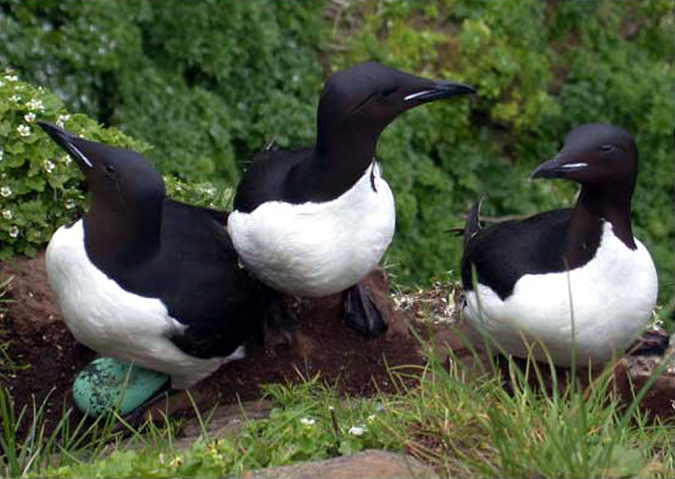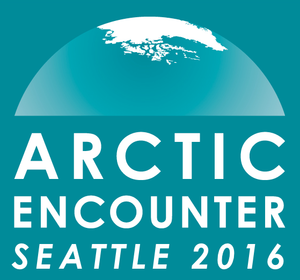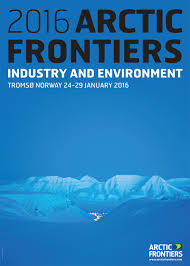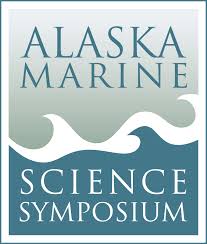|
|
|
|
|
|
|
|
Today's Congressional Action:
The House and Senate are not in session.
|
 North Pole Unfrozen as Temperature Soars. North Pole Unfrozen as Temperature Soars. Stormy weather in the North Atlantic has brought balmy weather to the world's northernmost point. The temperature in the North Pole hit 42 degrees Fahrenheit on Wednesday morning, which Discovery News says is 50 degrees higher than average for this time of year. Storms over Iceland and Greenland, fairly common in winter, are pushing warmer air to the Arctic. Time
Giant Sea Spiders in Arctic Ocean Puzzle Scientists. Giant sea spiders, as well some other oversized creatures found in the seas around the North and South poles have long puzzled scientists, who have been unable explain why there are so many examples of Polar gigantism. In a recent study, a team of researchers suggested it may have something to do with the oxygen levels in very cold water. Sea spiders, also known as Pantopoda or pycnogonids, are sea-dwelling arthropods known to exist in the Arctic and Antarctic Oceans, as well as the Caribbean and Mediterranean seas. There are more than 1,300 known species of them, and they range in size from 0.039 of an inch (1 millimeter) to more than 90 cm (35 inches). Market Business News
The Arctic, Explained: Northern Light. Typically, when people are looking up into the sky over northern Norway at this time of year, it is to observe the Northern Lights. For the time being, however, there is another phenomenon that is drawing people's attention. Pink skies are normal over Norway's polar regions in January, explains Josfina Wodziczeko, a meteorologist with YR, the Norwegian met office. Much like a sunset at lower latitudes, the colours appear when the sun is low on the horizon and its rays shine upward onto high-level clouds before being reflected back to earth. Arctic Journal
 Nature Conservation: Close to the Edge. Nature Conservation: Close to the Edge. If future generations of Greenlanders are to be allowed to hunt thick-billed murre, a species of cliff-dwelling bird found throughout the northern polar region, a temporary halt of a least a decade should be put into place. The recommendation, announced by Pinngortitaleriffik, the national institute of natural resources before Christmas, is a repeat of guidance issued two years ago. Since then, biologists say, the situation has not improved, and further delays in could result in the collapse of the population. Arctic Journal
|
Legislative Action
No Arctic legislation was formally considered yesterday.
|
|
Future Events
"Arctic Matters" day at the National Academy of Sciences, January 14th, 2016 (Washington, DC, USA)This symposium is part of an ongoing initiative of the National Academies of Science Polar Research Board to expand public understanding of why the dramatic changes affecting the Arctic region ultimately matter to us all. The agenda features engaging presentations and discussions with top Arctic science and policy experts, and displays and interactive exhibits that illustrate Arctic change and its global impacts. The event is free and open to the public. There are sponsorship opportunities, and a call for exhibitor applications. Audience space is limited, so register today; and please encourage your friends, neighbors, and colleagues to participate-as our goal is to reach well beyond the small circle of specialists who typically attend Arctic-themed events in the DC area.
The U.S. Arctic Research Commission is the primary sponsor of this event.
** New this week** ARCUS Arctic Research Seminar Series: Dr. Julie Brigham-Grette, January 15, 2016 (Washington, DC, USA and Webinar).The ARCUS Arctic Research Seminar Series brings some of the leading Arctic researchers to Washington, D.C. to share the latest findings and what they mean for decision-making. The seminars are open, and will be of interest to Federal agency officials, Congressional staff, NGOs, associations, and the public. The inaugural seminar (Friday, 15 January at 12:00 - 1:00 p.m. Eastern Time) will be presented by Dr. Julie Brigham-Grette, Geosciences Professor at the University of Massachusetts, and Chair of the U.S. National Academy of Sciences Polar Research Board.
East-West Arctic Cooperation During Times of Global Tension, January 15, 2016. Can the United States and its allies cooperate with Russia, China and other Asian nations during times of tense relations - or will cooperation on common interests in the Arctic succumb to the more familiar geopolitical tensions of the Cold War era? Stimson will host this event. Vice Admiral Charles Michel, the Vice Commandant of the United States Coast Guard, will deliver a keynote speech on the new Arctic Coast Guard Forum established to promote maritime safety and security cooperation in the Arctic. Following VAdm. Michel's presentation, a panel of experts will discuss the progress and challenges to future East-West cooperation in the Arctic region.
 Building upon the preceding Arctic Encounter event in Paris, the third annual Arctic Encounter Symposium (AES) in Seattle, Washington will convene policymakers, industry leaders, and leading experts to confront the leading issues in Arctic policy, innovation, and development. The AES mission is to raise awareness, engage challenges, and develop solutions for the future of a region and a people. The two-day program includes two keynote luncheons, expert plenary sessions, break out sessions, a networking cocktail reception and seated dinner. A closing reception will take place at the conclusion of the program. Building upon the preceding Arctic Encounter event in Paris, the third annual Arctic Encounter Symposium (AES) in Seattle, Washington will convene policymakers, industry leaders, and leading experts to confront the leading issues in Arctic policy, innovation, and development. The AES mission is to raise awareness, engage challenges, and develop solutions for the future of a region and a people. The two-day program includes two keynote luncheons, expert plenary sessions, break out sessions, a networking cocktail reception and seated dinner. A closing reception will take place at the conclusion of the program.
 2016 Arctic Frontiers, January 24-29, 2015 (Tromso, Norway).The Arctic is a global crossroad between commercial and environmental interests. The region holds substantial natural resources and many actors are investigating ways to utilise these for economic gain. Others view the Arctic as a particularly pristine and vulnerable environment and highlight the need to limit industrial development. Arctic Frontiers 2016 will discuss the balance between resource utilisation and preservation, and between industrial and environmental interests in the Arctic. Envisioning a well-planned, well-governed, and sustainable development in the Arctic, how can improved Arctic stewardship help balance environmental concerns with industrial expansion? How can the industrial footprints from future business activities be minimised? And last, but not least, what role will existing and emerging technologies play in making industrial development profitable and environmentally friendly, securing a sustainable growth scenario for Arctic communities? 2016 Arctic Frontiers, January 24-29, 2015 (Tromso, Norway).The Arctic is a global crossroad between commercial and environmental interests. The region holds substantial natural resources and many actors are investigating ways to utilise these for economic gain. Others view the Arctic as a particularly pristine and vulnerable environment and highlight the need to limit industrial development. Arctic Frontiers 2016 will discuss the balance between resource utilisation and preservation, and between industrial and environmental interests in the Arctic. Envisioning a well-planned, well-governed, and sustainable development in the Arctic, how can improved Arctic stewardship help balance environmental concerns with industrial expansion? How can the industrial footprints from future business activities be minimised? And last, but not least, what role will existing and emerging technologies play in making industrial development profitable and environmentally friendly, securing a sustainable growth scenario for Arctic communities?

Alaska Forum on the Environment, February 8-12, 2016 (Anchorage, Alaska, USA). The Alaska Forum on the Environment (AFE) is Alaska's largest statewide gathering of environmental professionals from government agencies, non-profit and for-profit businesses, community leaders, Alaskan youth, conservationists, biologists and community elders. The diversity of attendees and comprehensive agenda sets this conference apart from any other. Each year there are over 80 technical breakout sessions and sensational Keynote Events. There will be a full week of sessions on climate change, energy, environmental regulations, cleanup and remediation, fish & wildlife, solid waste, and more.
5th Annual Fletcher Opening Arctic Conference, March 12, 2016. The Opening Arctic Conference builds on the Fletcher School's Warming Arctic International Inquiry series, to bring together high-level thought leaders from across disciplines, Fletcher's hallmark. Staged annually, Fletcher's event continues to address the foreign policy, economic, environmental and security implications of the opening Arctic, while dispelling myths.
Alaska Rural Energy Conference, April 26-28, 2016 (Fairbanks, Alaska, USA). The Alaska Rural Energy Conference is a three day event offering a large variety of technical sessions covering new and ongoing energy projects in Alaska, as well as new technologies and needs for Alaska's remote communities. Building on the growing success, the Alaska Energy Authority and the Alaska Center for Energy and Power have joined forces again to organize and sponsor the 10th annual Alaska Rural Energy Conference.
14th IATS Seminar, June 19-25, 2016 (Bergen, Norway). The University of Bergen (UiB) is honored to host the 14th IATS Seminar in Bergen, Norway, from Sunday 19 to Saturday 25 June 2016 in co-operation with the Network for University Co-operation Tibet-Norway, an academic network with the universities of Oslo, Bergen and Tromsų as partners. The convenor is Professor Hanna Havnevik, Department of Culture Studies and Oriental Languages, University of Oslo, and Chair of the Network.
Inuit traditions are a repository of Inuit culture and a primary expression of Inuit identity. The theme for the 2016 Inuit Studies Conference invites Elders, knowledge-bearers, researchers, artists, policy-makers, students and others to engage in conversations about the many ways in which traditions shape understanding, while registering social and cultural change. The institutional hosts of "Inuit Traditions," Memorial University of Newfoundland and the Nunatsiavut Government, invite you to contribute to an exchange of knowledge to be held in St. John's, Newfoundland and Labrador, October 7-10, 2016. Presentations on all aspects of Inuit studies will be welcome.
|
|

  
4350 N. Fairfax Drive, Suite 510
Arlington, VA 22203, USA
External links in this publication, and on the USARC's World Wide Web site ( www.arctic.gov) do not constitute endorsement by the US Arctic Research Commission of external Web sites or the information, products or services contained therein. For other than authorized activities, the USARC does not exercise any editorial control over the information you may find at these locations. These links are provided consistent with the stated purpose of this newsletter and the USARC Web site.
|
|
|
|
|
|
|
|
|